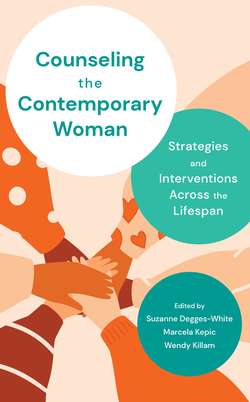Читать книгу Counseling the Contemporary Woman - Suzanne Degges-White - Страница 11
На сайте Литреса книга снята с продажи.
Developmental or Other Disability
ОглавлениеDisabilities are typically conceptualized through two frameworks. The first, the biological or medical model, focuses primarily on “fixing” or managing medical aspects of disability. In this model, professionals primarily emphasize medical interventions and symptom management. Despite the medicalization of disability, women with disabilities show significant disparities in health-care access, reporting less access compared to women without disabilities and men with disabilities, according to the 2006 National Health Interview Survey (Smith, 2008). The second model, termed the social or sociopolitical model, frames disability from a minoritized group perspective and recognizes the societal barriers and challenges for people with disabilities. Without negating medical, physical, mental, psychological, developmental, or other factors in disability, the social model largely focuses on access and equitable treatment regarding attitudinal, physical, and communication barriers (Berens & Erford, 2018). The social model strongly aligns with a multicultural counseling approach in conceptualizing minoritized identities, oppression, and attitudinal and institutional barriers. Women with visible disabilities are often viewed as less attractive and less capable, perpetuating a “weaker sex” sexist narrative. This intertwined ableism and sexism exacerbates sexist stereotypes of women’s intelligence and competence and can create barriers in multiple life domains, particularly in vocational and career development (Noonan et al., 2004).
